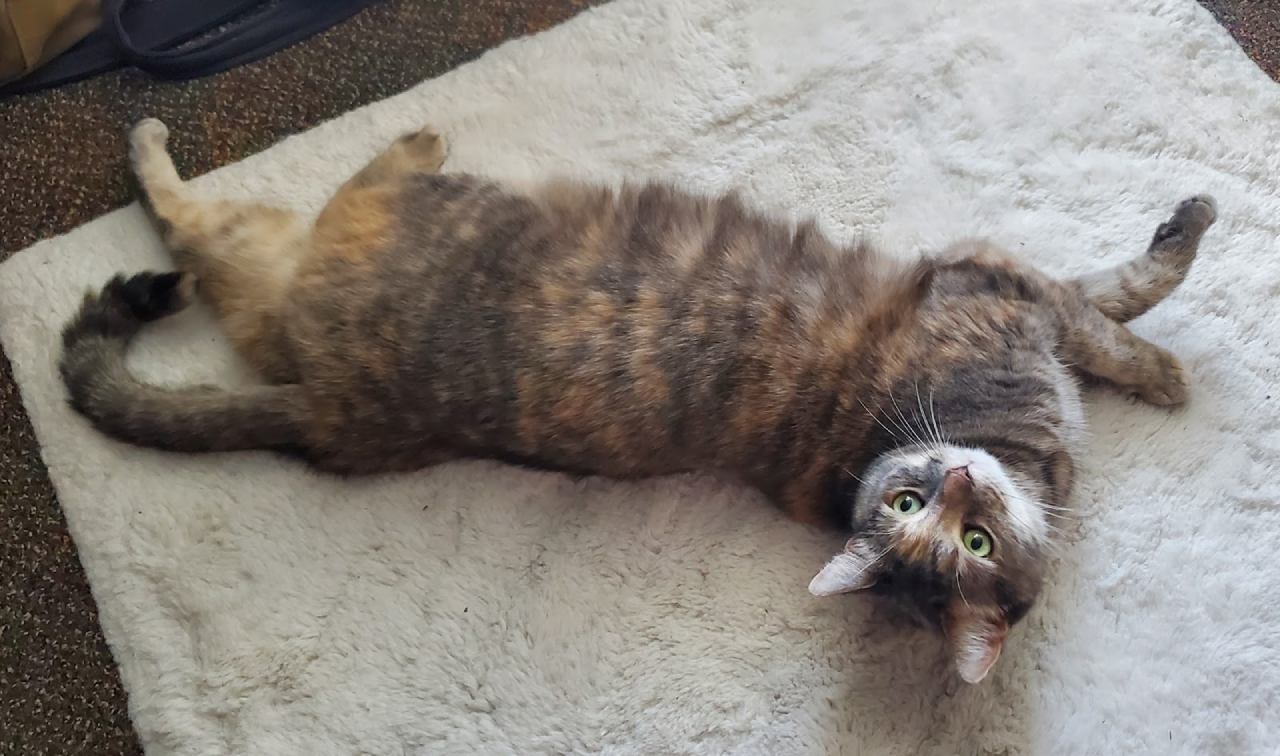The Pet Profiles of Dilworth – Part 2
Meet Athena!
I was able to have a chat with Dilworth resident Sam about their emotional support animal (ESA).
Q: How would you describe the process of getting your ESA approved?
A: It was pretty easy. I had to meet with the disability services office and fill out a form with my therapist, to confirm having an ESA is gonna help me and is allowed. No one really questioned it. It’s definitely normal and accepted. A lot of people have ESAs at Arcadia. I do think the process is easier at Arcadia than other schools, though I’m not too familiar with any other places.
Q: How long have you had your ESA?
A: She just turned 5 in May; I’ve had her and her siblings since they were 6 weeks old. We fostered them, and ended up adopting them. Out of all the kittens, Athena stuck out to me.
Q: Why or how did you choose your ESA’s name?
A: Every time we foster animals, we always name them with a theme. With Athena’s litter, we chose Greek/Roman gods and celestial bodies; some of her siblings are named Artemis, Leo, Venus, and more. We also sometimes call Athena “Tina” for short.
Q: Did your ESA go through any kind of training to be taken on campus?
A: Yeah, I got her a leash, harness, and a collar. I trained her a little bit on the porch and in our yard with the harness, in case we had to take her on a walk or if she ever got out. We also got a cat backpack carrier instead of the regular plastic carriers because they’re a bit more comfortable. We took her to the vet before here in the backpack, just so she could get a little experience traveling in it, and now she’s used to it.
Q: How has your ESA adapted to life on campus?
A: She actually adapted way faster than I thought she would; she’s always been pretty skittish around people. The first day here she was hiding a lot, but around the first week, she got super comfortable, and comfortable with my roommate, and she also met some of my friends. Even now, she still gets nervous sometimes, but she’s very happy otherwise.
Q: What does an average day with you and your ESA look like?
A: I usually wake up with her against me, and then I give her food and water (or she will yell at me). Then I have class, and she gets her dinner at the end of the day. I usually clean her litter every couple of days. We really like having her here; it makes the college routine better and a lot easier. She’s just very lovely to have around.
Q: How has your roommate adapted to your ESA?
A: Pretty good; we met before, and they were made aware that I had an ESA before school started. Housing also had to make sure they were aware. But yeah, I think we have a good system.
Q: How has your ESA improved your life as a college student?
A: She’s definitely helped me keep a schedule. I can’t sleep in for too long because she has to eat, and I have to get back to my dorm on time to care for her. It’s just really nice to come home and have her, and to have my friends come over and see her. She’s – obviously – so cute and sweet, which makes everything better, especially when it comes to my situation with anxiety and other problems. Again, we just really love having her around.
A special thank you to Sam for answering my questions, and to his cat, Athena, for being so lovely during her interview!


